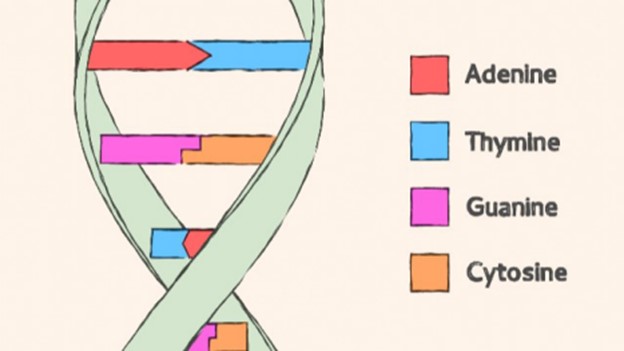A nurse is reviewing the results of a patient’s DNA sequencing test, which was performed to diagnose a genetic disorder.
The nurse notices that the patient has a mutation in one of the bases of the DNA. Which of the following is the correct term for this type of mutation?
Deletion
Insertion
Substitution
Inversion.
The Correct Answer is C
A substitution mutation is a type of point mutation where one base in the DNA sequence is replaced by another base.
Choice A is incorrect because a deletion mutation occurs when one or more bases are removed from the DNA sequence.
Choice B is incorrect because an insertion mutation occurs when one or more bases are added to the DNA sequence.
Choice D is incorrect because an inversion mutation occurs when a segment of DNA is reversed within the chromosome.
Nursing Test Bank
Naxlex Comprehensive Predictor Exams
Related Questions
Correct Answer is C
Explanation
Transcription initiation is the term used to describe the process of synthesizing RNA from a DNA template strand.
Choice A is incorrect because a complementary strand of a DNA sequence refers to the strand that is complementary to the original DNA strand.
Choice B is incorrect because replication fork formation refers to the process of separating the two strands of DNA during replication.
Choice D is incorrect because Okazaki fragment synthesis refers to the synthesis of short fragments of DNA on the lagging strand during replication.
Correct Answer is C
Explanation
A primer is a short single-stranded DNA fragment used in certain laboratory techniques, such as the polymerase chain reaction (PCR).
In the PCR method, a pair of primers hybridizes with the sample DNA and defines the region that will be amplified.

Choice A) A short piece of double-stranded DNA that binds to the template DNA and acts as a “starter” for the polymerase is incorrect because primers are single-stranded, not double-stranded.
Choice B) A short piece of double-stranded DNA that binds to the primer and acts as a “starter” for the template is incorrect because it does not make sense for a primer to bind to itself.
Choice D) A short piece of single-stranded DNA that binds to the polymerase and acts as a “starter” for the template is incorrect because primers bind to the template DNA, not to the polymerase.
Whether you are a student looking to ace your exams or a practicing nurse seeking to enhance your expertise , our nursing education contents will empower you with the confidence and competence to make a difference in the lives of patients and become a respected leader in the healthcare field.
Visit Naxlex, invest in your future and unlock endless possibilities with our unparalleled nursing education contents today
Report Wrong Answer on the Current Question
Do you disagree with the answer? If yes, what is your expected answer? Explain.
Kindly be descriptive with the issue you are facing.
